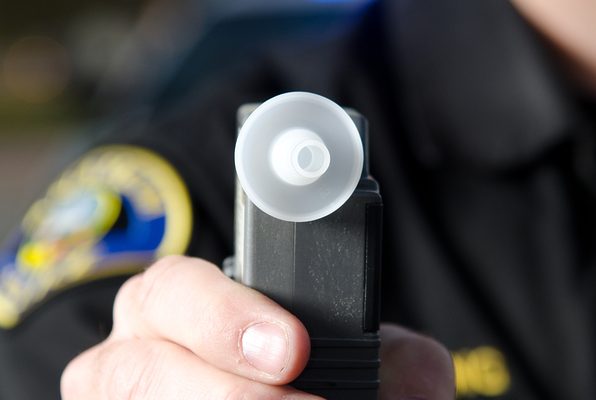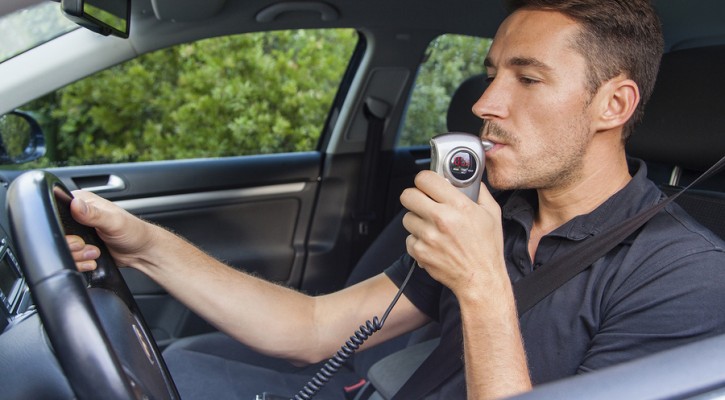Tag Archive: Driving Under the Influence

Supreme Court Upholds DUI Breathalyzer Tests
June 27, 2016
A recent Supreme Court decision impacted alcohol testing for drivers suspected of driving under the influence. The decision covered three different appeals from drivers convicted of DUI and upheld the use of breathalyzer exams by police in the field but put restrictions on blood tests.
In all three appeals, the drivers claimed that both the breathalyzer and blood tests were conducted illegally because a search warrant hadn’t been obtained by the arresting officers prior to conducting the tests. The drivers claimed that, without a warrant, the breathalyzer and blood tests were an unconstitutional violation of their fourth amendment protection against unreasonable searches and seizures.
In a five to three decision, the justices ruled that the breathalyzer exam was a reasonable search following a lawful arrest. The breath test is less intrusive and serves the interest of law enforcement in conducting the investigation of the case.
The Supreme Court justices found however, that the blood test is more intrusive and would require a warrant from a judge before police could require that the suspect submit a blood sample.
The Supreme Court decision upheld the conviction of the driver who claimed the breathalyzer test was unconstitutional but it overturned the conviction of a driver who challenged the blood test requirements. In the third case involving a blood sample, the case was sent back to the lower court for reconsideration in light of the ruling.
Several states including Florida and Texas have implied consent laws that allow police to use reasonable force to extract a blood sample in cases where alcohol use was suspected as the cause of a crash that caused a death or injury. Those states will probably require that judges be available around the clock to issue warrants before in time to gather the evidence before the suspect has sobered up.
The breathalyzer decision was hailed by advocates for stronger DUI laws. Mothers Against Drunk Driving applauded the decision by the court for “confirming that driving is a privilege, not a right.”
For more information, read: Supreme Court OKs warrant-less breathalyzer tests in drunk driving arrests

Drugged Driving Increasing But Hard To Prove
November 25, 2014
The increase in instances of drugged driving has law enforcement and state officials worried throughout the country. With more states either legalizing or decriminalizing marijuana use, police are seeing more instances of drivers under the influence of marijuana. The problem is that it’s hard to prove under many state laws. Continue Reading

A Single Statistic: Ignition Interlocks
October 14, 2014
Do ignition interlocks prevent drunk driving for first time offenders? A recent study shows that understanding a single statistic can change the public’s attitude on the need for safe driving laws. With that in mind, we are posting a series of single statistics on a variety of traffic safety issues. Many lawmakers are reluctant to enact driving safety laws because they feel – rightly or wrongly – that the public doesn’t support such reforms. If your state legislature is debating a traffic safety issue, it’s hoped that this single statistic will provide the public with the knowledge needed to make informed decisions that they can then share with their representatives.
The Issue: Requiring ignition interlocks for all offenders
Should all states require that an ignition interlock device (IID) be installed on all vehicles driven by a person convicted of DUI, even for a first offense? Twenty two states currently have laws requiring that an ignition interlock device be installed for all driving under the influence (DUI) offenders. Organizations such as Mothers Against Drunk Driving (MADD) are urging all states to pass laws requiring ignition interlocks for all DUI offenders. Both MADD and the National Highway Traffic Safety Administration (NHTSA) have proposed model guidelines to encourage all states to pass laws requiring IIDs for all first time offenders.
The Risks:
According to NHTSA, 10,322 people were killed in alcohol-impaired-driving crashes in 2012. These alcohol- impaired-driving fatalities accounted for 31 percent of the total motor vehicle traffic fatalities in the United States. Traffic fatalities in alcohol-impaired-driving crashes increased by 4.6 percent from 9,865 in 2011 to 10,322 in 2012. It’s estimated that one out of three drivers will be involved in an alcohol related crash at some point in their life.
The Single Statistic:
Previous NHTSA research of convicted drunk drivers show that those with interlocks installed are 75 percent less likely to repeat the behavior compared to those who do not.
Find your representative:
If you wish to share your thoughts on this issue with your state representatives, you can find their contact information by visiting: Find Your State Legislator – Open States
